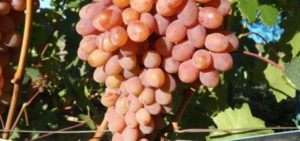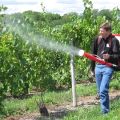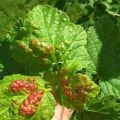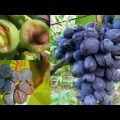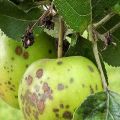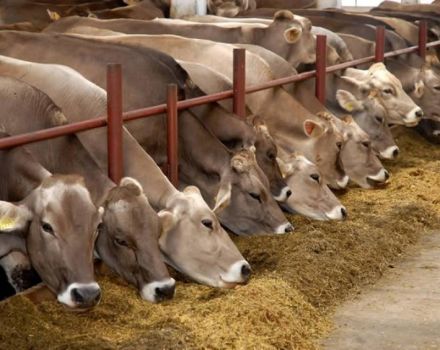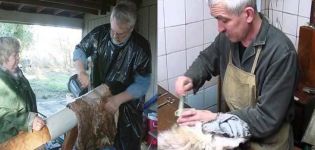The better to process the grapes after prolonged rains in July during the ripening period
An important point in vine care is preventive treatment. In conditions of high humidity, the bushes are affected by diseases. Therefore, it is recommended to process the grapes in July after rain, especially if there are foci of the disease. Timely measures taken help prevent the development of fungal diseases on the plantings and save the harvest.
What is processing for?
It would seem that rain is necessary for all living things, but not everything is as good as it seems at first glance. With long, unceasing downpours, warm weather and stuffiness, ideal conditions for development are created grape diseases... Therefore, in order to preserve the plant and not lose the harvest, it is important to process the bushes on time.
Mushroom spores provoke many diseases:
- oidium;
- rot;
- mildew.
The listed diseases can ruin the crop and the entire bush. The most favorable breeding environment is created during the warm rainy days of July.
Around the plant in the soil, there are many spores that fall with raindrops on the foliage of the grapes. Even with the resistance of the variety to ailments, there is a high probability of infection.
If not properly cared for, heavy rainfall will cause moisture to accumulate around the trunk, which in turn will form mold.... Its spores become active and begin to harm the plant. Therefore, it is in July, before the beginning of the growing season, that the soil around the plant and the bushes themselves are brought into proper condition. For this, the vine is treated in time against diseases.
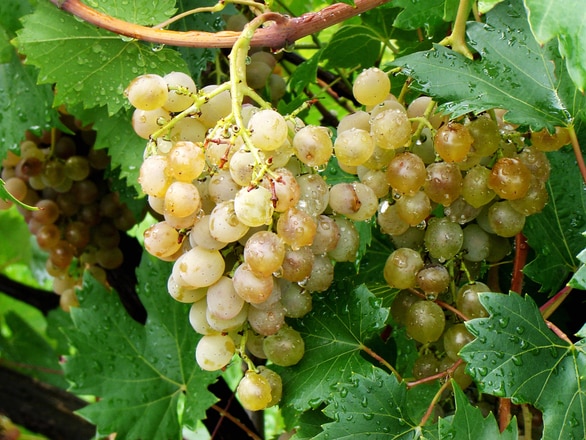
Preparations for processing vines
Bushes are especially vulnerable after rain. After the cessation of precipitation, the culture is treated with special preparations. Chemicals have not yet been invented that can cure infected grapes. Therefore, processing is designed to perform basic functions:
- Destroying pathogenic microorganisms, which helps reduce the risk of disease.
- When a crop is infected, the treated healthy parts of the plant are less likely to spread the disease.
Most gardeners do not know how to process the plantings. Therefore, before the procedure, it is necessary to study the information on suitable means. A complex preparation is suitable for processing, which is intended for spraying after precipitation. Special products act on various types of fungi, pests and mold.
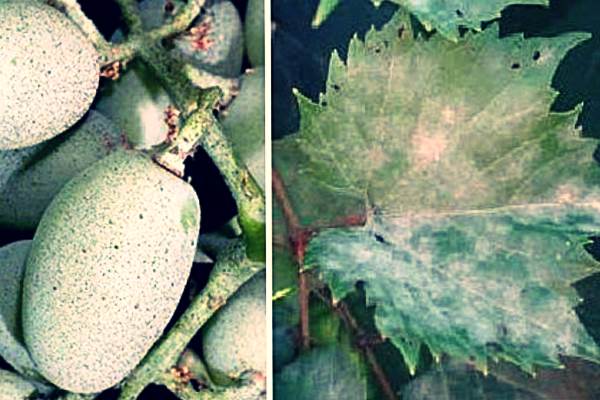
The drugs help best:
- "Topaz". The complex preparation protects against various fungal diseases, prevents mildew from spreading.Helps reduce the possibility of getting anthracnose. Used for prevention and at the initial stage of diseases.
- Stroby. Spraying with the product after rain in hot weather helps to combat the development of downy mildew and prevents powdery mildew infestation. The main advantage is safety for pollinating insects, it is allowed for use during flowering.
- "Tiovit". It destroys various types of mold and helps in the fight against spider mites.
- Ridomil Gold. The most effective remedy. Low toxicity. Reliably protects the culture from fungus, enveloping the leaves from the outside, and acts from the inside.
- Bordeaux mixture. An effective and time-tested remedy. Helps with the main diseases of the vineyard, but is highly toxic. When working with the drug, you will need to observe increased safety measures and prepare strictly according to the recipe. Overdose leads to negative consequences. Processing is allowed at a temperature of 25-36 degrees. Frequent use during the ripening period concentrates the high copper content in the fruit.
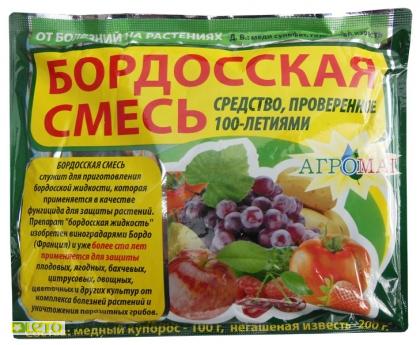
Any of the listed drugs, if the recommendations are followed, will benefit the plantings.
Folk remedies
If there are no obvious symptoms of diseases, or with minor damage, you can perform treatment with folk remedies. They have a harmless effect on plantings, but are less effective. They are recommended to be used as prophylactic agents for grape processing or at the first sign of disease. It is worth examining the basic methods of spraying against the growth of bacteria in rainy weather.
Soda solution
Suitable for use at all stages of the growing season. In July, warm weather helps create a film on the crop that is alkaline. The solution does not allow fungi to germinate. Bushes are processed before flowering and after.
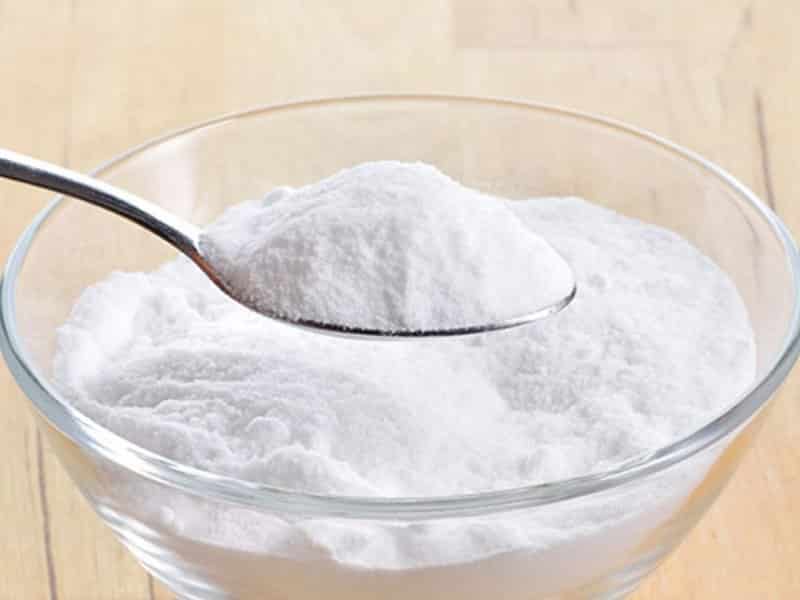
To prepare the solution, use:
- water - 5 l;
- soap - 25 g of laundry;
- baking soda - 25 g.
The products are dissolved and sprayed every week.
Copper sulfate
The blue preparation in granules is harmless to the culture. But when dissolved, it becomes a highly acidic agent and can harm the plantings.

Colloidal sulfur
Treatment is carried out at the very beginning of the development of ailments. In order not to cause irreparable harm to the plantings, you will need to carefully adhere to the necessary proportions indicated by the manufacturer. Prepare a solution in warm water. The powder is completely dissolved. Only freshly prepared product is used. Spraying with the solution protects the crop for two weeks. Bushes are processed after rain.
Prevention and control of pests
The most common pests:
- grape itch;
- different types of ticks.
These pests are also called felt mites. They are represented by small insects, the length of which does not exceed 0.2 mm. They suck the juice from grape leaves by poking them underneath. The insect itself is difficult to see. A yellow swelling appears at the puncture site, which is visible from the top of the leaf. A felt web forms from below. As a result, the foliage begins to dry out slowly.
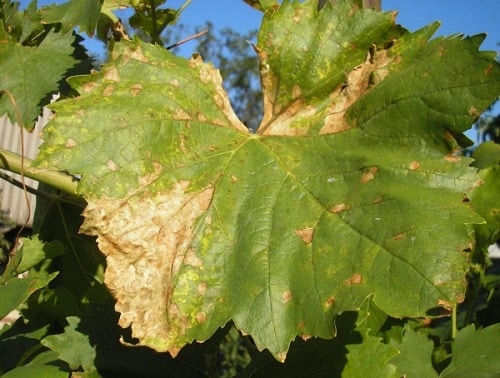
Fight:
- branches are tied high above the soil;
- remove the affected leaves.
For the prevention and control of pests, the plantings are sprayed with preparations:
- "Kleschevit";
- Fitoverm.
It is important to properly prepare for the procedure and carry it out correctly.
Preparation for work
There are a variety of pest control methods, but chemical and biological methods remain effective.
Preparation rules:
- remove damaged leaves;
- carry out pruning;
- tie up a vine;
- burn sick, damaged parts;
- break up clods of earth, loosen the soil and level the earth.
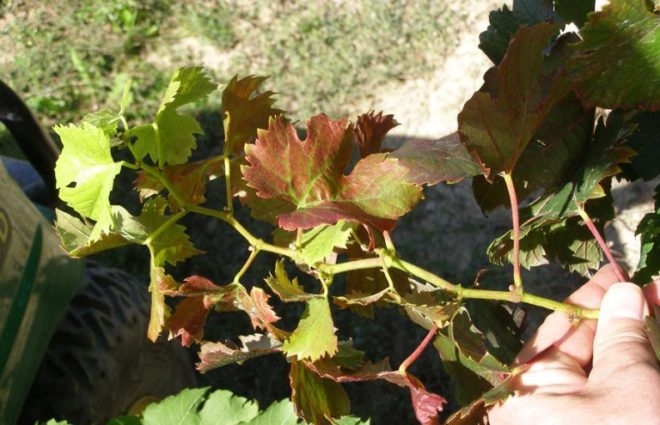
Use for processing only the amount specified by the manufacturer.
Processing stages
For planned processing, the following recommendations are followed:
- Plants are treated after rain in the evening, after sunset.
- To achieve the result, the composition must remain on the leaves for a long time. Before processing, pay attention to the weather forecast. If it is likely that the rains will continue, spraying is postponed.
- When processed during the scorching sun, burns appear on the sheets.
- In the heat, the solution evaporates intensively, thereby reducing the effect of the drug.
- Shoots in contact with the soil are carefully treated. The chemical only works on the treated parts.
Prevention is an important prerequisite for caring for a vineyard after rains. Even resistant varieties are created with favorable conditions that help prevent the spread of pests and diseases.
